Here are my favorite poems about bluebells categorized:
- Short poems about bluebells
- Famous poems about bluebells
So if you want the best poems about bluebells, then you’re in the right place.
Let’s get right into it!
- 31 Enchanting Poems About Cherry Blossoms
- 21 Intoxicating Poems About Lavender
- 63 Satisfying Poems About Weeds
- 163 Free-Spirited Poems About Wildflowers
- 69 Sublime Poems About Poppy Flowers
- 105 Exquisite Poems About Flowers
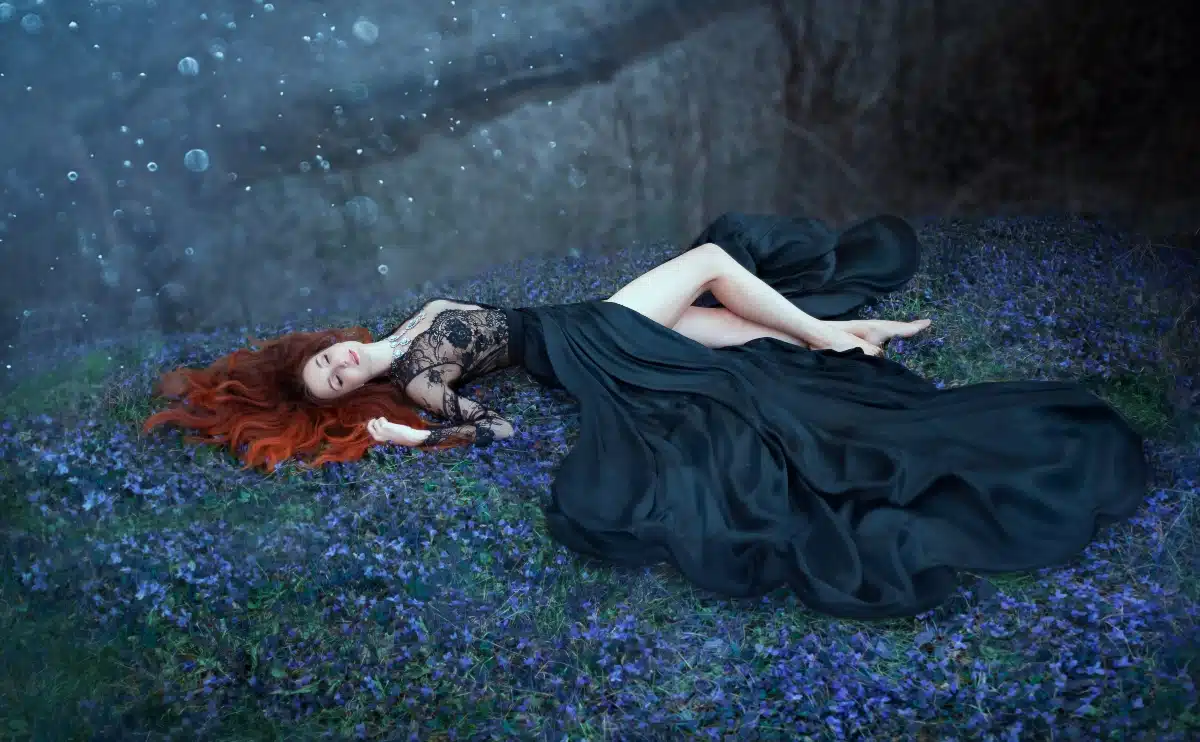
Mesmerizing Poems About Bluebells
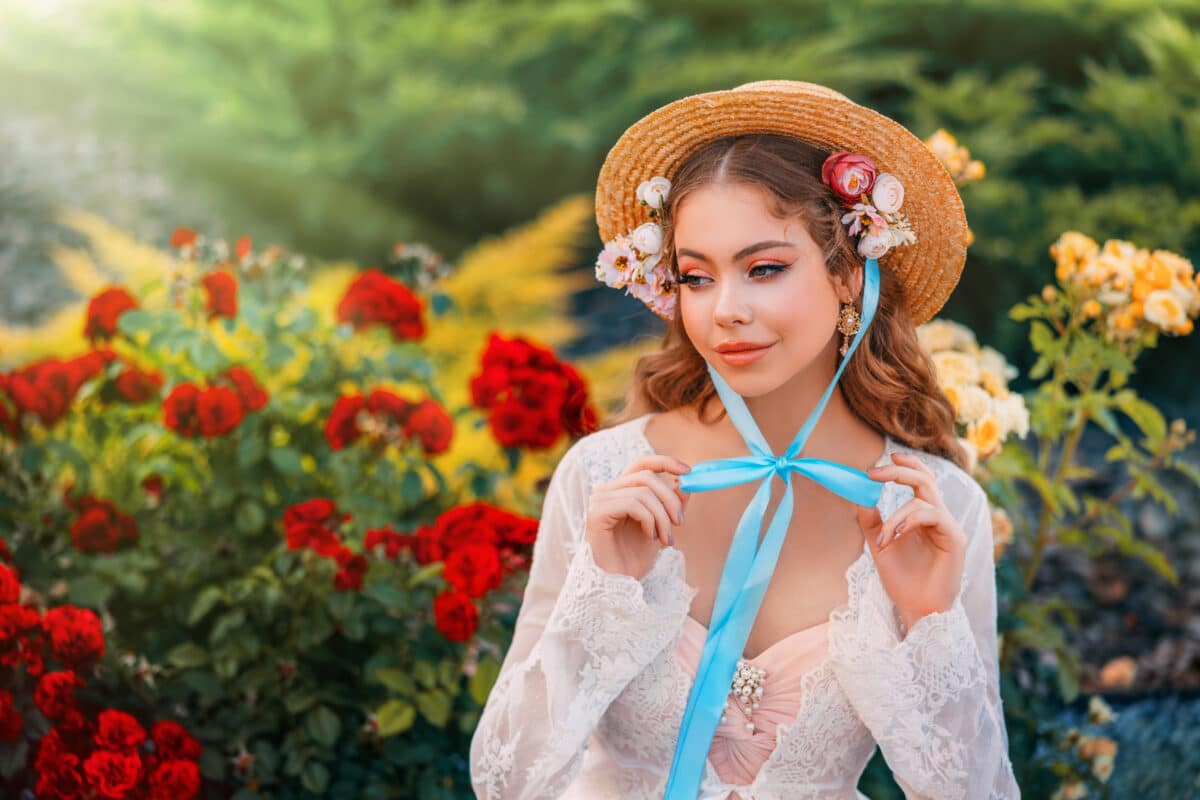
Buckle up and get mesmerized by the enchanting world of bluebells as our collection of poems takes you on a captivating journey through nature’s beauty.
From short poems that encompass the connection of bluebells to nature and life in few but powerful lines to poems written by renowned poets around the world and from different generations, we have it all here for you to relish.
If you’re looking for poems that bring inspiration and realizations, our collection of poems about bluebells will surely leave you wanting for more.
So what are you waiting for?
Let’s get right to it!
My #1 Favorite Poem About Bluebells
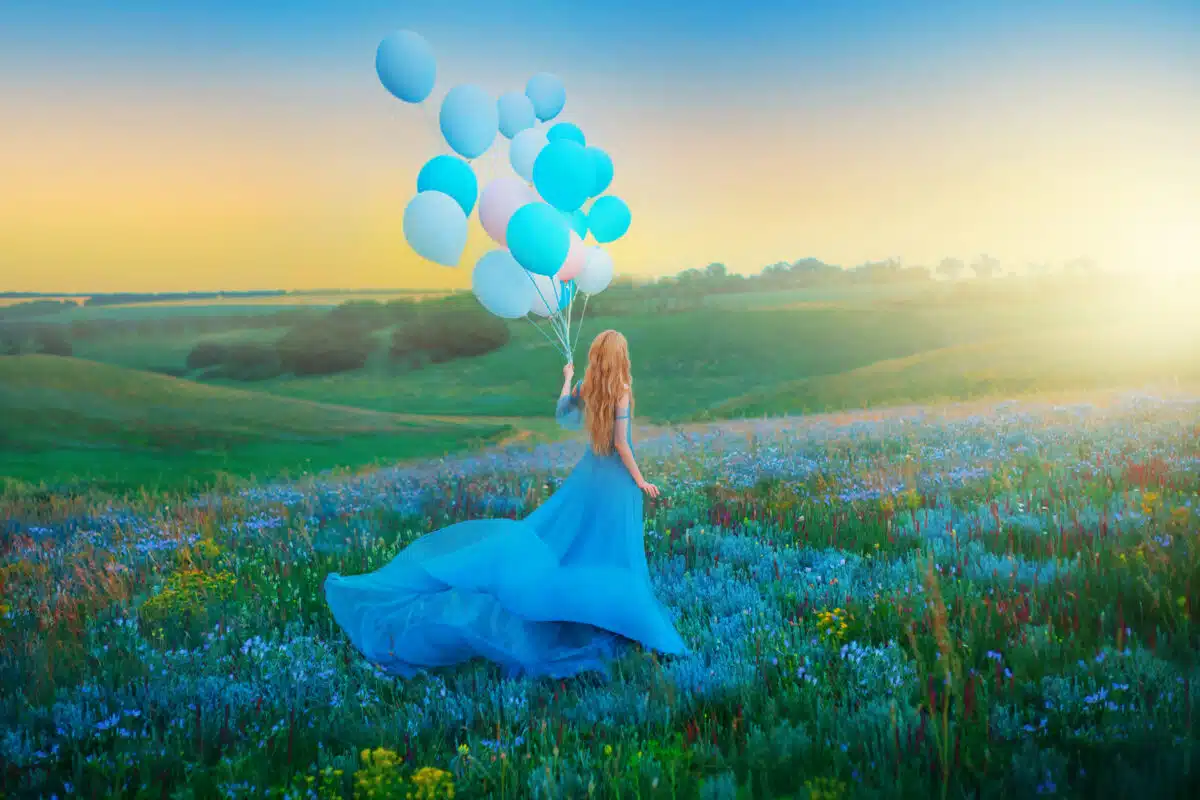
“The Blue Bell” by Emily Bronte
The blue bell is the sweetest flower
That waves in summer air;
Its blossoms have the mightiest power
To soothe my spirit’s care.
There is a spell in purple heath
Too wildly, sadly dear;
The violet has a fragrant breath
But fragrance will not cheer.
The trees are bare, the sun is cold;
And seldom, seldom seen;
The heavens have lost their zone of gold
The earth its robe of green;
And ice upon the glancing stream
Has cast its sombre shade
And distant hills and valleys seem
In frozen mist arrayed
The blue bell cannot charm me now
The heath has lost its bloom,
The violets in the glen below
They yield no sweet perfume.
But though I mourn the heather-bell
‘Tis better far, away;
I know how fast my tears would swell
To see it smile today;
And that wood flower that hides so shy
Beneath the mossy stone
Its balmy scent and dewy eye:
‘Tis not for them I moan.
It is the slight and stately stem,
The blossom’s silvery blue,
The buds hid like a sapphire gem
In sheaths of emerald hue.
‘Tis these that breathe upon my heart
A calm and softening spell
That if it makes the tear-drop start
Has power to soothe as well.
For these I weep, so long divided
Through winter’s dreary day,
In longing weep, but most when guided
On withered banks to stray.
If chilly then the light should fall
Adown the dreary sky
And gild the dank and darkened wall
With transient brilliancy,
How do I yearn, how do I pine
For the time of flowers to come,
And turn me from that fading shine
To mourn the fields of home
Short Poems About Bluebells
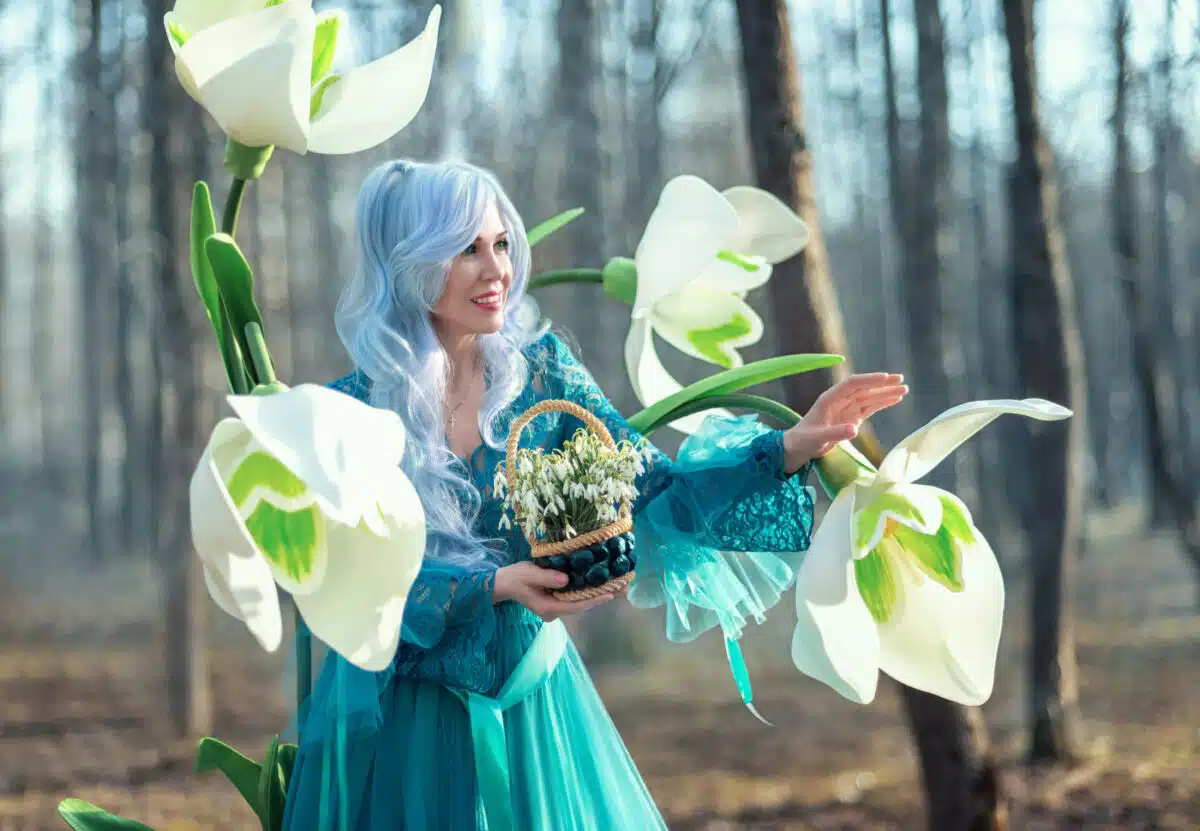
“Where Bluebells Nod” by Edward Burrough Brownlow
Where blue-bells nod beneath the trees
And violets scent the summer breeze
I love to lie the whole day long
And listen to the wild bird’s song,
While bees hum in their harmonies.
Proud wealth can buy its days of ease,
But not made up of hours like these;
To none doth rank or fame belong
Where blue-bells nod.
In vain the arts may strive to please
The sense with novel images;
For me, this sweet, cool fern among,
All Nature’s right, all Art is wrong;
Ah ! leave me with my birds and bees,
Where blue-bells nod.
“The Bluebell” by Charles Kirby
All hail! thou fairy azure gem,
Sparkling in Nature’s diadem,
With glowing pearl-drops full of light,
Sprinkled from the breath of night.
Array’d in skirt of emerald green,
Fit robe to grace a fairy queen;
Where could a brighter flower be found,
E’en though we search the woodland round?
The violet is fair to see
As is the cowslip on the lea;
Sweet in the wild-rose after showers,
But bluebells are the fairest flowers.
“Bluebells” by Walter De La Mare
Where the bluebells and the wind are,
Fairies in a ring I spied,
And I heard a little linnet
Singing near beside.
Where the primrose and the dew are –
Soon were sped the fairies all:
Only now the green turf freshens,
And the linnets call.
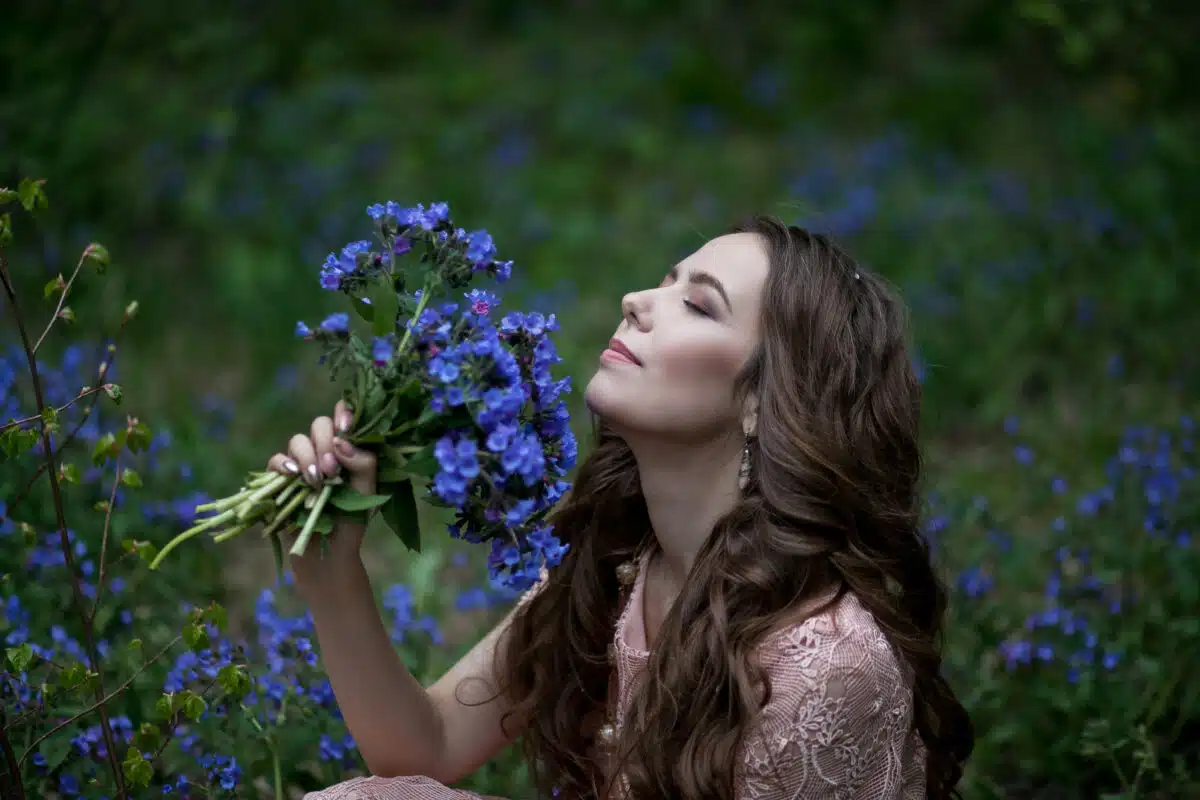
“Bluebells Near the City” by John Walker
Behold these glades that are flecked with blue-
Thrilled and filled with a happier hue
Than any but azure of children’s eyes!
Hyacinths bright in a maze of light!
Surely our hopes may end their flight
In these long vistas of Paradise?
What are the words of the flowers to-day?
Fair and rare are the words they say:
After the primrose, here we bring
Joy to the wild,-for the city child
Tortured and shamed in a home defiled,-
For the vision of Eden famishing.
“And knowing not whence comes happiness,-
Sad or glad as their sorrows press-
The children see us and help implore:
What is our spell we may not tell—
Hither they come from the heart of hell
And find the way to a heavenly door!”
“Blue-Bells in the Shade” by Eliza Cook
The choicest buds in Flora’s train, let other fingers twine;
Let others snatch the damask rose, or wreath the eglantine;
I’d leave the sunshine and parterre, and seek the woodland glade,
To stretch me on the fragrant bed of blue-bells in the shade.
Let others cull the daffodil, the lily, soft and fair;
And deem the tulip’s gaudy cup most beautiful and rare;
But give to me, oh, give to me, the coronal that’s made
Of ruby orchis mingled with the blue-bells from the shade.
The sunflower and the peony, the poppy bright and gay,
Have no alluring charms for me; I’d fling them all away:
Exotic bloom may fill the vase, or grace the high-born maid;
But sweeter far to me, than all, are blue-bells in the shade.
“Bluebells” by Grace Hibbard
The unseen fingers of the air
Set all the bluebells ringing.
My thoughts like birds that homeward fly,
Across the sea went winging.
To “banks and braes” where bluebells grow,
‘Neath trees where birds are singing,
Their home and mine-did others hear
The bonnie bluebells ringing?
Famous Poems About Bluebells
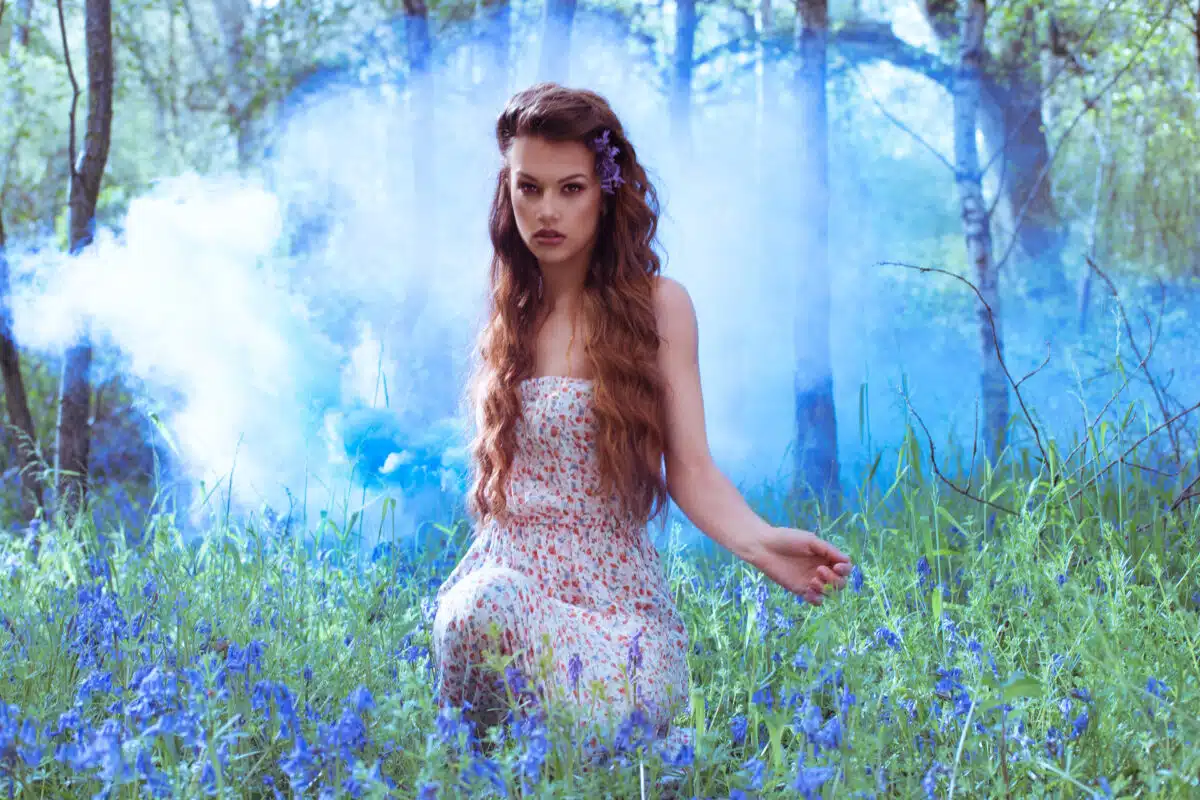
“Good, Better, Best” by Dorothea Maria Ogilvy
Three bridemaidens, in a green glade made golden by the sun,
Gathering the bluebells ere they fade, one by one,
Wild with freedom, wild with frolic, wild with fun;
To the throstle’s winsome lay
The blackbird lent his cadence—
Gather bright bluebells while ye may,
Oh! blithe maidens.
A forester strode by, with a love smile on his face—
A hunter bold, in green array, and all for the chase:
Save ye, my merry lasses three, God grant ye grace.
To his greeting, glad and gay,
The cuckoo lent his cadence—
Gather bright bluebells while ye may,
Oh! fine maidens.
He has ta’en the eldest maiden by the milk-white hand:
I love ye, my bonny dear, the dearest in the land;
Ye shall have a yeoman’s household, and a yeoman to command.
To her pretty yea and nay
The robin lent his cadence—
Gather bright bluebells while ye may,
Oh! braw maidens.
Two bridemaidens in a green glade, made yellow by the sun,
Gathering the bluebells ere they fade, one by one,
Wild with freedom, wild with frolic, wild with fun.
To the laverock’s leesome lay
The woodlark lent his cadence—
Gather bright bluebells while ye may,
Oh! gay maidens.
A cavalier rode past, with a love look in his eyes;
A soldier from the battlefield, with honour for his prize:
Fair damosels, my guerdon be your loving smiles and sighs.
To the music of his lay
The curlew lent his cadence—
Gather bright bluebells while ye may,
Oh! bright maidens.
He has ta’en the second maiden by the grass-green sleeve,
He has raised her to his saddlebow, with a kiss and by your leave:
With my coronet, dear lady mine, my heart’s dear love receive.
To her low-lispèd aye
The linnet lent his cadence—
Gather bright bluebells while ye may,
Oh! brave maidens.
One bridemaiden, in a green glade, made silvery by the moon;
Gathering bluebells as they fade; ah! how soon!
On her fair face a calmer light, a holier light than noon.
To the nightingale’s fond lay
The cushat lent his cadence—
Gather bright bluebells while ye may
Oh! rare maidens.
King Death stalked through the shadowy, moonlit glade,
And come with me through yon churchyard gate, maiden, he softly said;
And the gentle maiden looked on his face, and was not afraid.
To the river’s lulling lay
The west wind lent its cadence—
Gather bright bluebells while ye may,
Oh! sweet maidens.
And King Death has ta’en the maiden on to his pale, pale horse,
From out the drooping bluebells, and from out the dewy gorse,
And the stars of heaven looked silent down upon her lifeless corse
To the watchdog’s mournful bay,
The curfew lent its cadence,—
Gather bright bluebells while ye may,
Oh! fair maidens.
“Blue Bells” by John Hartley
Bonny little Blue-bells
Mid young brackens green,
‘Neath the hedgerows peeping
Modestly between;
Telling us that Summer
Is not far away,
When your beauties blend with
Blossoms of the May.
Sturdy, tangled hawthorn,
Fleck’d with white or red,
Whilst their nutty incense,
All around is shed.
Bonny drooping Blue-bells,
Happy you must be
With your beauties sheltered
‘Neath such fragrant tree.
You need fear no rival, –
Other blossoms blown,
With their varied beauties
But enhance your own.
Steals the soft wind gently,
‘Round th’ enchanted spot,
Sets your bells a-ringing
Though we hear them not.
Idle Fancy wanders
As you shake and swing,
Our hearts shape the message
We would have you bring.
Dreams of happy Springtimes
We hope yet to share;
Vague, but pleasant visions
All to melt in air.
Children’s merry voices
Break your witching spells,
Chubby hands are clasping
Languishing Blue-bells.
Gay and happy children
Hop and skip along,
With their ringing laughter,
Sweet as skylark’s song.
Slowly soon I follow
Through the rustic lane,
But the sight that greets me
Gives me pang of pain.
Strewed upon the pathway,
Fairy Blue-bells lie,
Trampled, crushed and wilted,
Cast away to die.
Yet they lived not vainly
Though their life was brief,
Shedding gleams of gladness
O’er a world of grief.
And they taught a lesson, –
Rightly understood;
By their mute endeavour
Striving to do good.
“The Blue-Bells on the Lea” by Juliana Horatia Ewing
FAIRY KING.
“The breeze is on the Blue-bells,
The wind is on the lea;
Stay out! stay out! my little lad,
And chase the wind with me.
If you will give yourself to me,
Within the fairy ring,
At deep midnight,
When stars are bright,
You’ll hear the Blue-bells ring–
D!
DI! DIN!
DING!
On slender stems they swing.
“The rustling wind, the whistling wind,
We’ll chase him to and fro,
We’ll chase him up, we’ll chase him down
To where the King-cups grow;
And where old Jack-o’-Lantern waits
To light us on our way,
And far behind,
Upon the wind,
The Blue-bells seem to play–
D!
DI! DIN!
DING!
Lest we should go astray.
“So gay that fairy music,
So jubilant those bells,
How days and weeks and months go by
No happy listener tells!
The toad-stools are with sweetmeats spread,
The new Moon lends her light,
And ringers small
Wait, one and all,
To ring with all their might–
D!
DI! DIN!
DING!
And welcome you to night.”
BOY.
“My mother made me promise
To be in time for tea,
‘Go home! go home!’ the breezes say,
That sigh along the lea.
I dare not give myself away;
For what would Mother do?
I wish I might
Stay out all night
At fairy games with you.
D!
DI! DIN!
DING!
And hear the bells of blue.
“But Father sleeps beneath the grass,
And Mother is alone:
And who would fill the pails, and fetch
The wood when I am gone?
And who, when little Sister ails,
Can comfort her, but me?
Her cries and tears
Would reach my ears
Through all the melody–
D!
DI! DIN!
DING!
Of Blue-bells on the lea.”
The sun was on the Blue-bells,
The lad was on the lea.
“Oh, wondrous bells! Oh, fairy bells!
I pray you ring to me.
I only did as Mother bade,
For tea I did not care,
And winds at night
Give more delight
Than all this noonday glare.”
D!
DI! DIN!
DING!
No sound of bells was there
BOY.
“The snow lies o’er the Blue-bells,
A storm is on the lea;
Our hearth is warm, the fire burns bright,
The flames dance merrily.
Oh, Mother dear! I would no more
That on that summer’s day,
Within the ring,
The Fairy King
Had stolen me away–
D!
DI! DIN!
DING!
To where the Blue-bells play.
“Yet when the storm is loudest,
At deep midnight I dream,
And up and down upon the lea
To chase the wind I seem;
While by my side, in feathered cap,
There runs the Fairy King,
And down below,
Beneath the snow,
We hear the Blue-bells ring–
D!
DI! DIN!
DING!
Such happy dreams they bring!”
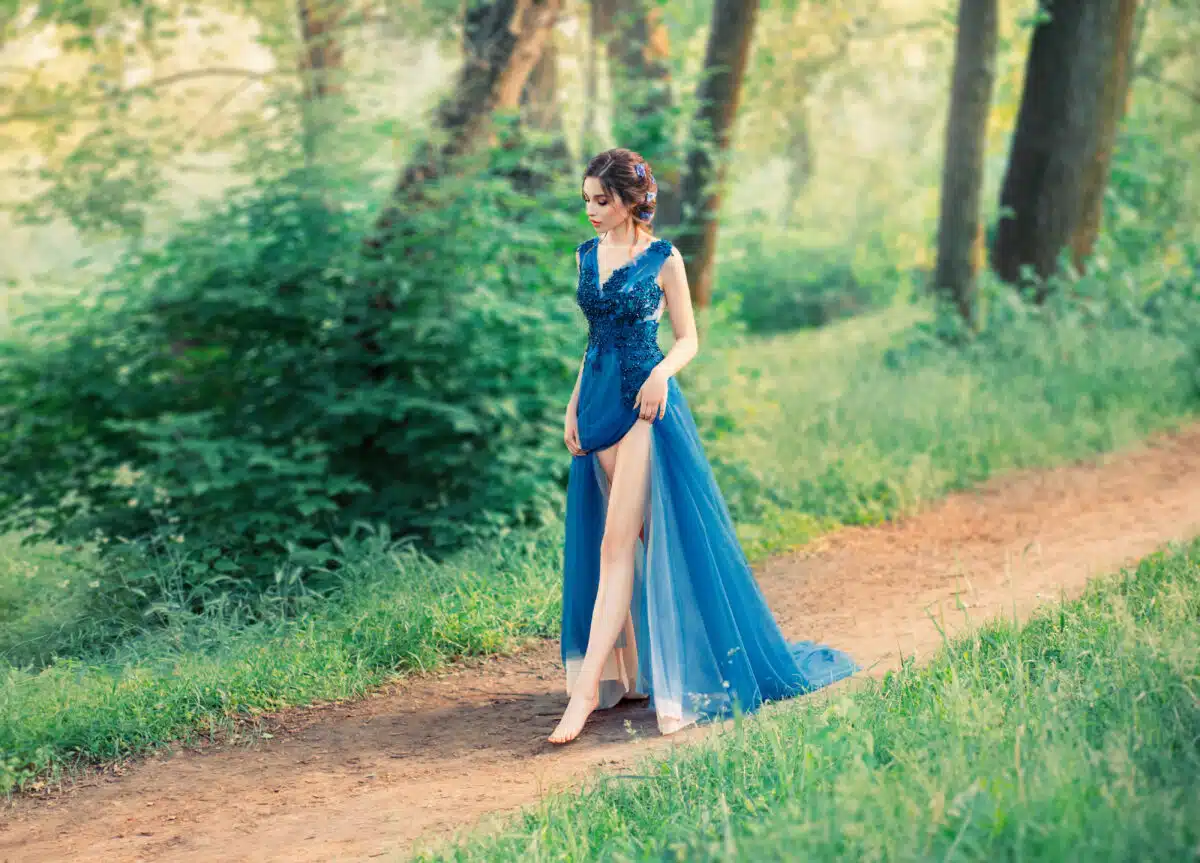
“Buttercups and Bluebells” by Dale Beach
Bright buttercups and bluebells
Ye were in early youth,
Ere time had left dark traces,
And fill’d my cup of ruth.
But truce to sombre musings; we’ll none of these;
We have enough of sadness, of sorrow’s bitter lees
In cares, in hourly wearing strife,
While passing through this vale of life.
But yet there is alloy.
Nature, in all her love loveliness,
Her broiderings and her jewell’d dress,
Beckons with smile and soft caress,
And bids us taste her joy.
We cannot choose, but must admire
The many beauties spread around,
Or hung on bush, or trailing brier;
Bush, brier, or tree, or spangled mound,
Are brightly fleck’d,
Are gaily deck’d
With gems which art of man defy,
Though he his craftiest skill may try,
How sweet a joy ye’ve brought to me,
Fair flowerets of the corpse and lea—
A joy and a sweet pleasure;
And ye’ve heap’d full high a measure
Far coming retrospections—
Most tender recollections.
A store from which in future days
I might enrich my simple lays.
Ye yet can call up many a dream
Of begone days; but these I’ll deem
The visions of but yesterday,
And feel as then, both blythe and gay.
I’ll revel in delights so dear—
Distant? ah no! they are most near.
Then stay, for now my span of life
Is waning fast; nor will, not strife
Shall blur or mar my pictur’d store
Of pleasing scenes. My heart cries more!
More yet, and more of youthful joy;
Such ne’er can tire, can never cloy!
Sweet flowers, ye pleas’d me well, and still
Your azure and your golden sheen
Shall rhymster glad, and child I ween;
And these shall feel the pleasing thrill
Which all must feel who wander free
By copse, or on the flowery lea;
For there the bonny blue bell hangs
Her drooping head on fragile stem,
And there the buttercup is found,
‘Mid the tall grass, shining gem.
“The Bluebell” by Anne Bronte
A fine and subtle spirit dwells
In every little flower,
Each one its own sweet feeling breathes
With more or less of power.
There is a silent eloquence
In every wild bluebell
That fills my softened heart with bliss
That words could never tell.
Yet I recall not long ago
A bright and sunny day,
‘Twas when I led a toilsome life
So many leagues away;
That day along a sunny road
All carelessly I strayed,
Between two banks where smiling flowers
Their varied hues displayed.
Before me rose a lofty hill,
Behind me lay the sea,
My heart was not so heavy then
As it was wont to be.
Less harassed than at other times
I saw the scene was fair,
And spoke and laughed to those around,
As if I knew no care.
But when I looked upon the bank
My wandering glances fell
Upon a little trembling flower,
A single sweet bluebell.
Whence came that rising in my throat,
That dimness in my eye?
Why did those burning drops distil,
Those bitter feelings rise?
O, that lone flower recalled to me
My happy childhood’s hours
When bluebells seemed like fairy gifts
A prize among the flowers,
Those sunny days of merriment
When heart and soul were free,
And when I dwelt with kindred hearts
That loved and cared for me.
I had not then mid heartless crowds
To spend a thankless life
In seeking after others’ weal
With anxious toil and strife.
‘Sad wanderer, weep those blissful times
That never may return!’
The lovely floweret seemed to say,
And thus it made me mourn.
“Bluebells” by F.R.A
Bluebells, bluebells, tender, drooping,
Ever lowly in your mien,
Rising on the lofty mountain,
Or in gentle valley seen;
Teaching, in your quiet beauty,
Lessons redolent with grace;
Unassuming, never changing,
Whether high or low your place!
Flow’rets here, and flow’rets there,
Be they red, or white, or blue,
Flaunt not over their companions,
Flow’rs are flow’rs of any hue.
Well it were if such sweet practice
Held an universal pow’r
Over God’s created children,
So much higher than the flow’r.
Much that causes now such discord
Would be banish’d from the earth;
For men are only brethren,
Be whatever state their birth;
And the holy precepts given
By the Meek and the Divine,
Might be follow’d, from the hovel
To the mighty palace fine.
For all of dust are made alike,
And to dust again shall fall;
There’s no distinction made in that
By the leveller of all:
But the most despis’d and meanest,
May hereafter gain a place
Neither rank nor gold could purchase,
For ’tis only won by grace.

“The Wild Blue-Bells” by Ella Wheeler Wilcox
Came a bouquet from the city,
Fragrant, rich and debonair—
Sweet carnation and geranium,
Heliotrope and roses rare.
Down beside the crystal river,
Where the moss-grown rocks are high,
And the ferns, from niche and crevice,
Stretch to greet the azure sky;
In the chaste October sunlight,
High above the path below,
Grew a tuft of lovely blue-bells,
Softly wind-swung to and fro.
Reached a dainty hand to grasp them,
Bore them home with loving care,
Tenderly and proudly placed them
‘Mid the flowers so sweet and fair.
But my timid little blue-bells,
Children of the leafy wild,
Dazzled by their city sisters,
Turned away and, tearful, smiled.
When, alone, I bent to kiss them,
Pleadingly they sighed to me,
“Take us, when we die, we pray thee,
Back beneath the dear old tree.
“We would sleep where first the sunshine
Kissed us in the dewy morn;
Where, while soft, warm zephyrs fanned us,
Leaf and bud and flower were born.”
So I bore them, when they faded,
Back to where love sighed for them;
Laid them near the ferns and mosses,
‘Neath the dear old parent stem;—
Deeply grieved that all things lovely
Must so soon forever die,—
That upon the gentle blue-bells
Winter’s cold, deep snows must lie.
And I half arraigned the goodness
That made Death king everywhere—
Stretching forth his cruel sceptre—
Lord of sea, and earth, and air.
Summer came, and all the hillsides
Wore a shim’ring robe of green;
And with rifts of sky and cloudlet
Flashed the river’s golden sheen.
I was walking the old pathway,
When a tiny shout I heard;
Harken! was it elfin fairy,
Or some truant mocking bird?
No! a family of blue-bells
Waved their slender arms on high,
Clapped their tiny arms in triumph,
Crying, “See! we did not die.
“Never more distrust the Master,
Love and Truth His ways attend;
Death is but a darkened portal
Of a life that ne’er shall end.
“Loved ones, parted from in anguish,
Your glad eyes again shall see,—
Brighter than the hopes you cherished
Shall the glad fruition be.”
“The Bluebells of New England” by T. B. Aldrich
The roses are a regal troop,
And humble folks the daisies;
But, Bluebells of New England,
To you I give my praises,—
To you, fair phantoms in the sun,
Whom merry Spring discovers,
With bluebirds for your laureates,
And honey-bees for lovers.
The south-wind breathes, and lo! you throng
This rugged land-of ours:
I think the pale blue clouds of May
Drop down, and turn to flowers!
By cottage doors along the roads
You show your winsome faces,
And, like the spectre lady, haunt
The lonely woodland places.
All night your eyes are closed in sleep,
Kept fresh for day’s adorning:
Such simple faith as yours can see
God’s coming in the morning!
You lead me by your holiness
To pleasant ways of duty:
You set my thoughts to melody,
You fill me with your beauty.
And you are like the eyes I love,
So modest and so tender,
Just touched with daybreak’s glorious light,
And evening’s quiet splendor.
Long may the heavens give you rain,
The sunshine its caresses,
Long may the woman that I love
Entwine you in her tresses.
“Bluebells” by C.O.G
My spirit all enchanted by the scene,
I lie amongst the bluebells in a wood;
Soft blue of Heaven above, around me blue.
Thin shafts of green and tender little leaves
Scarce grown enough to quiver in the breeze.
Away from sight, a choir of warbling birds,
Sing through green aisle the glories of the spring,
Whilst flowers shaken as bby fairy hands
Exhale their perfume in a hymn of praise.
All nature revels in a thanksgiving,
In which my hiding soul comes forth to join.
What meaning is there in these rhythmic tones
Of color, perfume, sunshine, and sweet song?
What secret lies in this full life of flowers,
So sweet, so perfect in its ordering?
Far gentlier, more beautiful, divine,
Than man’s with all his strange and wayward ways.
And yet maybe each opening blossom here
Has its distinct and individual task,
Living and working for itself alone.
Absorbed I listen. From each tiny bell
There comes a plaintive supplicating cry,
As of a soul imploring to be free,
To fly with fluttering wings and mount to Heaven.
I seem to understand that prisoned prayer
For quick deliverance, and my spirit yearns
To join in the appeal. Oh! bluebells fair,
Wise counsellors to those who search for light,
Teach us to prize thy silent eloquence;
The one great God looks down upon us all,
Whether we live as flowers or as men;
Naught know we of our far off destiny,
Save that we pass away from this fair world
Of everchanging loveliness, and rest
Awhile, as seeds sleep in the sheltering earth.
Then, reincarnated we shall awake,
How, when or where ’tis not for us to know.
Hope bids us live, for Life cannot be vain
Whilst bluebells blossom each year again;
Ring out sweet bells thy chorus of sweet song,
And help us to march hopefully along.
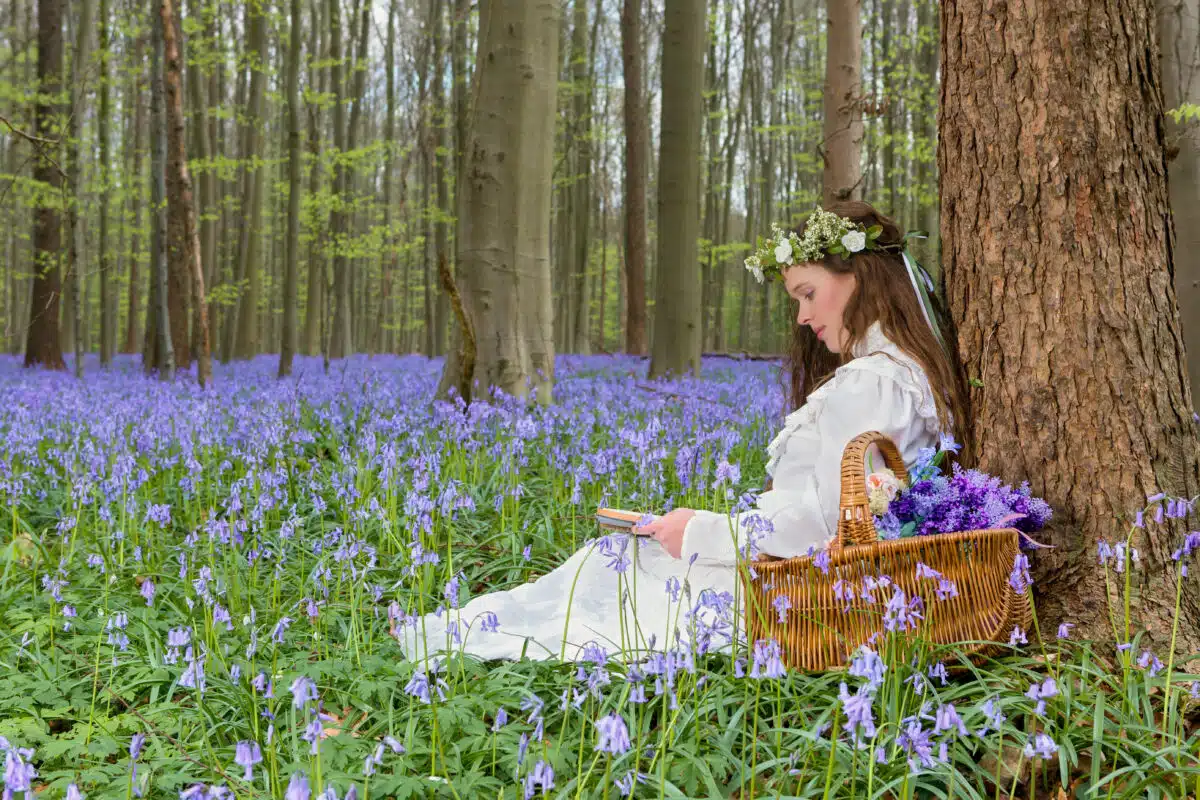
“Campanula, the Blue-Bells or Bell-Flowers” by Richard Knott
How beautiful those bright blue-bells!
Their form exact, their name reveals,
Though tongue-less each, the whole resound
Their Maker’s praise, and ring it round.
Their gay corollas, sun and dew
Have deeply dyed a violet hue.
Hark! hear ye not the minstrel bee,
Alighting, ring them merrily.
Such sounds are too attenuate
The human ear to penetrate;
But music certainly they make,
Which on the insect ear may break.
Since all in nature, silent praise,
Or vocal, to Jehovah raise,
These natʼral bells, inaudible,
The universal anthem swell.
The mind may fancy it can hear
Their peals of praise salute the ear;
For though unheard, they ceaseless chime,
‘The hand that made us is divine!’
Beholding them, a mental view
The saint may take, of “robe all blue,
With golden bells, by Aaron worn,”
And from the Type, to Jesus turn.
“Wild Blue-Bells” by Mary St. Clair Williams
Dearly I love the Wild Blue-Bells,
Where e’er these flow’rs may be,
In valleys fair, or lonesome dells,
The Wild Blue-Bells for me.
In rich and sweet profusion, they
In wildest spots are found;
These bells for me, charm’d music play,
And silv’ry is their sound.
Oh! I love dearly wild Blue-Bells;
Yes, dearly do I love Blue-Bells.
Dearly I love the Wild Blue-Bells,
For many a summer’s day
In early life, by sylvan wells,
To seek them would I stray.
When love was young, and friends were true,
Then bound by witching spells,
I’ve wander’d free, and happy too,
To gather Wild Blue-Bells.
Oh! dearly, do I love Blue-Bells;
Yes, I love dearly Wild Blue-Bells.
Dearly I love those Bells, so sweet,
So beautifully blue;
That simply bow, as if to greet
Our love, and for it sue.
I gave them mine, they bring a charm
Yet to my soul, which tells
Of one, whose love was true and warm,
That cull’d with me Blue-Bells.
Oh! I love dearly Wild Blue-Bells;
Yes, dearly do I love Blue-Bells.
“Bluebells” by C. O. G
Ring out sweet bells,
Bluebells! Bluebells!
Now spring is here
Thy music swells
Out bright and clear
Through woodland dells,
And so foretells
The world’s good cheer.
Bright celandine, and pure anemone,
Sweet violet, and primrose—friends of thine,
All rally round to hold high revelry,
New lease of life—new love—and joy divine.
Sing out a joyous song—a’done with tears, Sport in the sun—catch colors from the skies, Dance o’er the withered leaves of bygone years, Forget the past, and let new hope airse.
Sing out a joyous song—a’done with tears,
Sport in the sun—catch colors from the skies,
Dance o’er the withered leaves of bygone years,
Forget the past, and let new hope airse.
Chime out thy fairy music to the wind,
That it may reach those hearts made sad and chill
By stormy blasts, fortune’s ways unkind,
Revive their faith and give them courage still,
To lift thy standard with its flag unfurled,
Trumpet a marching air to cheer and bless,
Proclaim to a rejuvenated world
The promise of fair summer’s loveliness.
Ring out sweet bells,
Bluebells! Bluebells!
Now spring is here
Thy music swells
Out bright and clear
Through woodland dells,
And so foretells
The world’s good cheer.
